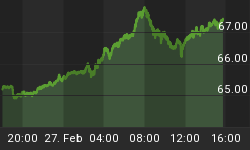Credit card debt is soaring, but banks aren’t attracting anyone to new deals as COVID-19 proves to be less of a boon for creditors than they might have thought. Weaker personal income growth and rapid job losses are pushing Americans into more debt, while banks are simultaneously tightening lending standards to reduce risk.
A survey by CreditCards found that nearly half of U.S. adults are carrying debt on their credit cards, up from a month ago, while 1 in 4 of those already in debt have piled on more.
The Federal Reserve Bank of New York reported that with a total of $14.3 trillion, U.S. household debt rose by $155 billion in the first quarter from the previous three-month period, or 1.1%.
Alarmingly, that's also $1.6 trillion higher than the previous peak of $12.7 trillion reached in 2008.
Overall, the number of people with credit card debt has increased to 47% from 43% since early March.
At the same time, according to the recent survey by CompareCards, almost 50 million people saw their credit limits decreased or their cards canceled involuntary since early April.
In recent weeks, some banks--including as JPMorgan Chase--have increased minimum credit scores for certain types of mortgages.
But while Americans are accruing more debt on existing credit cards, there is a decrease in demand for new cards. Since early March, inquiries for new credit card applications declined by 40%.
In March, rising financial concerns stemming from an economic lockdown kept consumers from using credit, according to a report from data analytics firm The NPD Group.
Related: Video Game, Alcohol And Home Workout Gear Sales Are Exploding Even though credit cards make up 82.1% of all retail (brick-and-mortar store) transactions in the US, since January, these transactions have seen only a very modest 3.4% increase. The small increase indicates that people are still using cash almost as much as they were before the pandemic.
And that’s despite the fact that cash is, well, physically dirty and can carry bacteria and viruses.
It was only a few months ago that everyone was talking about the prospect of the US going cashless, particularly with the rise in new card users. A global pandemic that could have potentially solidified cashlessness, however, is having the opposite effect.
At the beginning of the coronavirus outbreak, many people rushed to the banks in a frenzy and withdrew cash to have on hand for emergencies. Soon enough, ATMs were empty and the bank cashiers were only taking previously announced withdrawals.
Also, millions of people received stimulus checks, further postponing the process of turning to credit cards for help.
But the current flirtation with cash may be only temporary, according to Marshal Cohen, NPD Group chief industry advisor for retail.
“Each week that goes by, you get further and further away from that stimulus money and I think you’re going to see credit cards start to accelerate in usage. People are going to need to reach into the credit lines to be able to start to make some of these purchases,” Cohen said on CNBC.
But there has also been pushback on the cashless trend as some lawmakers and activists argue that it excludes those who are underbanked or who don't have a bank account or credit card at all. Several cities and states have passed or are considering laws that require businesses to accept dollars and cents.
Related: U.S. Shale Faces Existential Threat As Oil Price War Rages On
Twenty-five percent of US households are unbanked or underbanked, according to the Federal Deposit Insurance Corporation survey. Those are people who either don’t have a bank account, or have an account, but still use financial services outside the banking system like payday loans to make ends meet.
More than half of unbanked households cited not having enough money to keep in an account, 30% said they don’t trust banks and 9 percent reported banks are in an inconvenient location
Moreover, in the last five years, 1,915 more branches in lower-income areas closed than were opened.
The bottom line is this: Cash may be a potential disease-carrying dinosaur, but when push comes to shove, a global pandemic exposes the vulnerability of anything you can’t touch. People run to cash because if a major economic crisis were to cause upheaval and chaos, it can’t be unplugged, even if it could be rendered worthless.
By Josh Owens for Safehaven.com
More Top Reads From Safehaven.com:
















